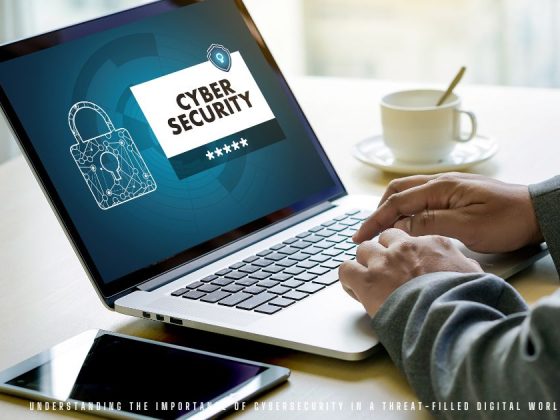In today’s interconnected world, the increasing reliance on digital platforms and networks has made cybersecurity a crucial issue affecting every aspect of society. Cybersecurity refers to the measures taken to protect digital systems, networks, and data from unauthorized access, attacks, or damage. With the ever-growing number of cyber threats, from hacking to data breaches and ransomware, the role of cybersecurity has become central in maintaining the integrity and safety of both individuals and organizations.
This article explores in-depth how cybersecurity affects society by focusing on several key areas, including economic impacts, privacy concerns, social behavior, technological advancement, national security, and public health. By understanding these facets, we can better appreciate the importance of strong cybersecurity measures in the modern digital landscape.
The Economic Impact of Cybersecurity
Cybersecurity plays a critical role in shaping the economy, especially as businesses and financial institutions become more reliant on digital infrastructures. Data breaches and cyberattacks have the potential to cause significant financial losses, damage to reputation, and interruptions in service delivery. The rise in cybercrime has created a multi-billion-dollar cybersecurity industry, tasked with defending against these threats.
1. Costs of Cybercrime
Cybercrime is expensive. In 2021 alone, global cybercrime costs were estimated to reach over $6 trillion annually, according to a report by Cybersecurity Ventures. These costs include stolen money, data recovery expenses, loss of intellectual property, and even the indirect costs associated with losing consumer trust and business reputation.
Companies spend vast amounts of money on cybersecurity solutions to protect their digital assets and customer information. Failing to invest in these protective measures can lead to costly data breaches. The cost to recover from a data breach can be debilitating for small businesses, and for large corporations, such incidents can lead to millions of dollars in fines, lawsuits, and reputational damage.
2. Job Creation and the Cybersecurity Workforce
On the flip side, the rise of cyber threats has also created new job opportunities. There is a high demand for cybersecurity professionals, making it one of the fastest-growing fields in technology. By 2025, it’s expected that there will be over 3.5 million unfilled cybersecurity jobs worldwide. This demand for skilled workers to build secure systems has led to a new branch of the economy, with specialized training programs, certifications, and degrees focused on cybersecurity.
The need for robust cybersecurity programs not only affects tech firms but also trickles down into every industry—healthcare, finance, education, and government—all of which require strong defenses against cyber threats.
How Cybersecurity Affects Society’s Privacy and Data Protection
One of the most significant ways how cybersecurity affects society is through privacy concerns. In the digital age, personal information, ranging from banking details to social media profiles, is stored and exchanged online. As data becomes a valuable asset, protecting it from unauthorized access is crucial for individuals and organizations.
1. Data Breaches and Identity Theft
The risk of data breaches has become a regular concern for people who interact online. Every year, millions of people fall victim to cybercrimes, especially identity theft. When a data breach occurs, sensitive information such as social security numbers, credit card details, and personal identification can be exposed or stolen. The repercussions of identity theft can be long-lasting and devastating, ranging from financial losses to emotional distress.
2. The Need for Data Encryption
Encryption technology, which ensures that only authorized parties can read sensitive information, is a fundamental tool in protecting privacy. Companies are increasingly required to encrypt data as part of their cybersecurity strategies. This is especially crucial for industries that handle large amounts of sensitive information, such as healthcare and finance.
Governments have also stepped in to protect consumer data. Regulations like the General Data Protection Regulation (GDPR) in Europe and the California Consumer Privacy Act (CCPA) in the United States require companies to adhere to strict privacy guidelines, placing heavy penalties on organizations that fail to protect user data.
3. Surveillance and Cybersecurity
In some ways, cybersecurity initiatives have also contributed to the rise of mass surveillance. Governments and law enforcement agencies often justify surveillance in the name of national security, claiming that monitoring digital communications helps to combat terrorism and cybercrime. However, this has sparked debates about the balance between privacy and security. While cybersecurity is essential to protect data, surveillance tactics can sometimes infringe on personal freedoms.
Social Behavior and Cybersecurity Awareness
As cyber threats increase, they affect how society interacts with technology. The rise in phishing attacks, scams, and malicious software has forced individuals to be more aware of their online behaviors.
1. Cybersecurity Education and Awareness
Many cyberattacks succeed because individuals and organizations lack proper cybersecurity knowledge. Phishing scams, for example, rely on people clicking on malicious links or giving away personal information unknowingly. To counteract this, cybersecurity education has become critical for the public.
Organizations are investing in training programs for employees, while governments and non-profits are running public awareness campaigns on how to avoid common cyber threats. In schools and universities, cybersecurity is becoming an essential part of the curriculum to ensure that the next generation is better prepared for the digital world.
2. Impact on Social Media Behavior
Cybersecurity concerns have also influenced how people behave on social media. Awareness of data privacy has grown in response to high-profile cases, such as the Cambridge Analytica scandal, where personal data from millions of Facebook users was harvested without consent for political purposes. These incidents have made individuals more cautious about what they share online and have raised questions about the ethics of data usage by social media companies.
People are now more selective in sharing personal information, and many users have embraced privacy-enhancing tools like Virtual Private Networks (VPNs) and encrypted messaging services to protect themselves from potential breaches.
Technological Advancement and Cybersecurity
Advancements in technology have expanded the threat landscape, bringing new opportunities and challenges in terms of cybersecurity.
1. The Internet of Things (IoT) and Smart Devices
The proliferation of Internet of Things (IoT) devices has revolutionized how people live and work. However, with millions of connected devices, IoT poses significant cybersecurity risks. Hackers can exploit vulnerabilities in smart home systems, medical devices, and even critical infrastructure like power grids, leading to potential dangers.
For instance, if a hacker gains control over a network of smart devices, they could access personal information or use those devices to launch more extensive cyberattacks. Cybersecurity measures must evolve rapidly to secure the growing number of IoT devices, from home assistants to industrial machinery.
2. Artificial Intelligence (AI) and Machine Learning
AI and machine learning have become vital tools in the fight against cyber threats. They are used to detect anomalies, predict threats, and automate responses to cyberattacks. However, AI also presents new cybersecurity challenges. Hackers can use AI to develop more sophisticated and targeted attacks. Machine learning algorithms could also be manipulated to act against their intended purposes.
AI-driven cybersecurity tools offer tremendous potential to defend against evolving threats, but they must be continually improved to stay ahead of attackers.
National Security and Cybersecurity
National security has always been a critical aspect of how cybersecurity affects society. As governments and militaries become more dependent on digital infrastructure, protecting these systems from cyber threats becomes essential.
1. Cyber Warfare
Cyber warfare has become a legitimate national security concern. Countries around the world have been accused of launching cyberattacks on each other, targeting critical infrastructure, government systems, and even election processes. Cyberattacks can cause disruptions in essential services, such as power grids, healthcare, and financial systems, potentially causing chaos and endangering lives.
The 2017 NotPetya cyberattack, for example, which originated in Ukraine, is considered one of the most devastating cyberattacks in history, affecting governments and corporations worldwide and causing billions in damages.
2. Election Security
The integrity of democratic elections is increasingly threatened by cybersecurity risks. Foreign interference through hacking, misinformation campaigns, and manipulation of voting systems have raised concerns about the security of elections. Countries are investing in cybersecurity to safeguard election infrastructures, ensuring that voting systems are secure and resistant to attacks that could undermine democracy.
3. Cybersecurity and National Defense
The importance of cybersecurity in national defense cannot be overstated. Governments worldwide have established specialized agencies dedicated to cybersecurity, such as the U.S. Cyber Command, tasked with defending against cyber threats and responding to cyberattacks. These agencies work to protect sensitive information, government networks, and national security assets.
Cybersecurity and Public Health
The healthcare sector is another critical area where cybersecurity has a profound impact on society. Healthcare organizations store sensitive patient information, and cyberattacks can have serious consequences for both patients and medical providers.
1. Protecting Health Data
The digital transformation of healthcare has led to the widespread use of electronic health records (EHRs) and telemedicine, both of which store and transmit large amounts of sensitive patient data. This makes healthcare organizations prime targets for cyberattacks. Data breaches in healthcare can expose personal health information, leading to identity theft and even threats to patient safety.
2. Ransomware in Healthcare
One of the most concerning cybersecurity issues in healthcare is ransomware attacks. These attacks involve hackers encrypting an organization’s data and demanding payment to release it. In 2020, several hospitals across the United States and Europe were forced to delay surgeries and treatments due to ransomware attacks that shut down their systems.
Healthcare organizations are now investing heavily in cybersecurity to protect patient data and ensure that critical services remain operational in the event of an attack.
Conclusion:
Cybersecurity affects every aspect of modern life, from personal privacy to national security. As society becomes more reliant on digital technologies, the importance of robust cybersecurity measures cannot be overstated. Cybercrime is evolving, and new threats continue to emerge, affecting individuals, businesses, and governments alike.
Investments in cybersecurity are essential to safeguard economic interests, protect sensitive data, defend against cyber warfare, and maintain public health and safety. Additionally, educating the public on cybersecurity awareness and developing innovative technologies to counter cyber threats will play an increasingly critical role in shaping the future of society.





